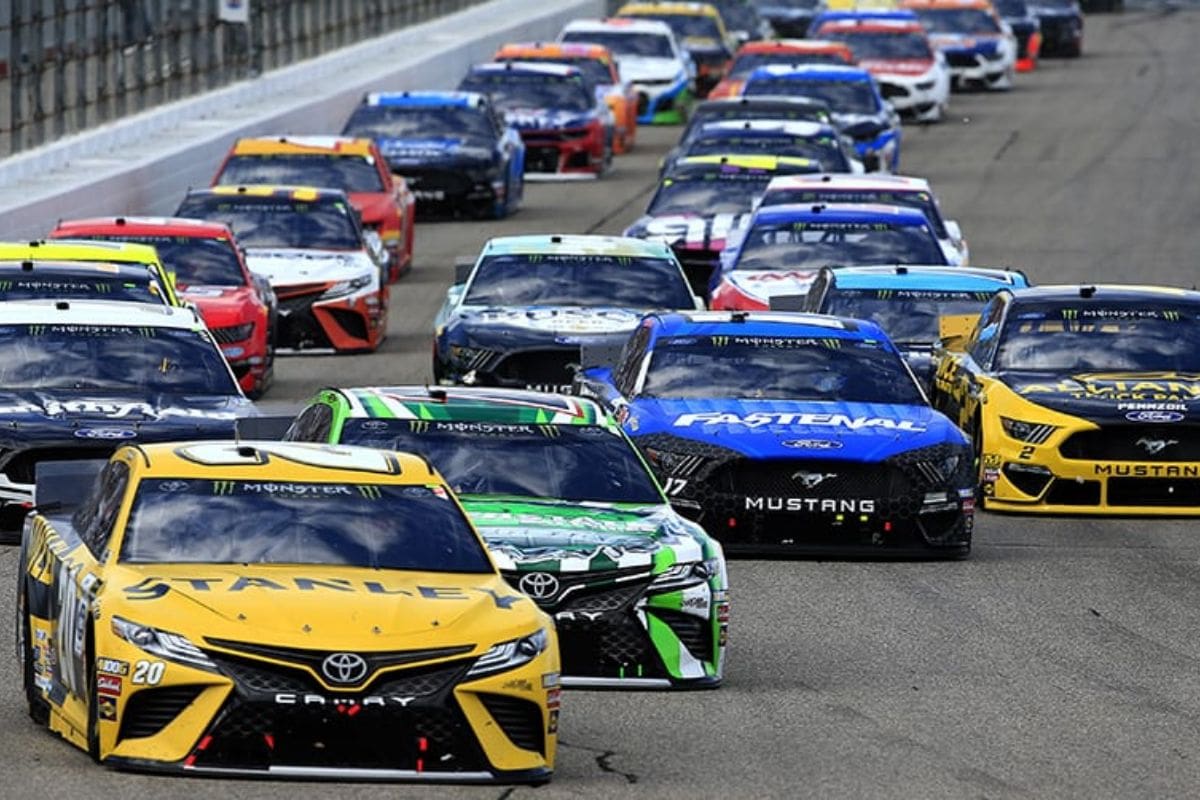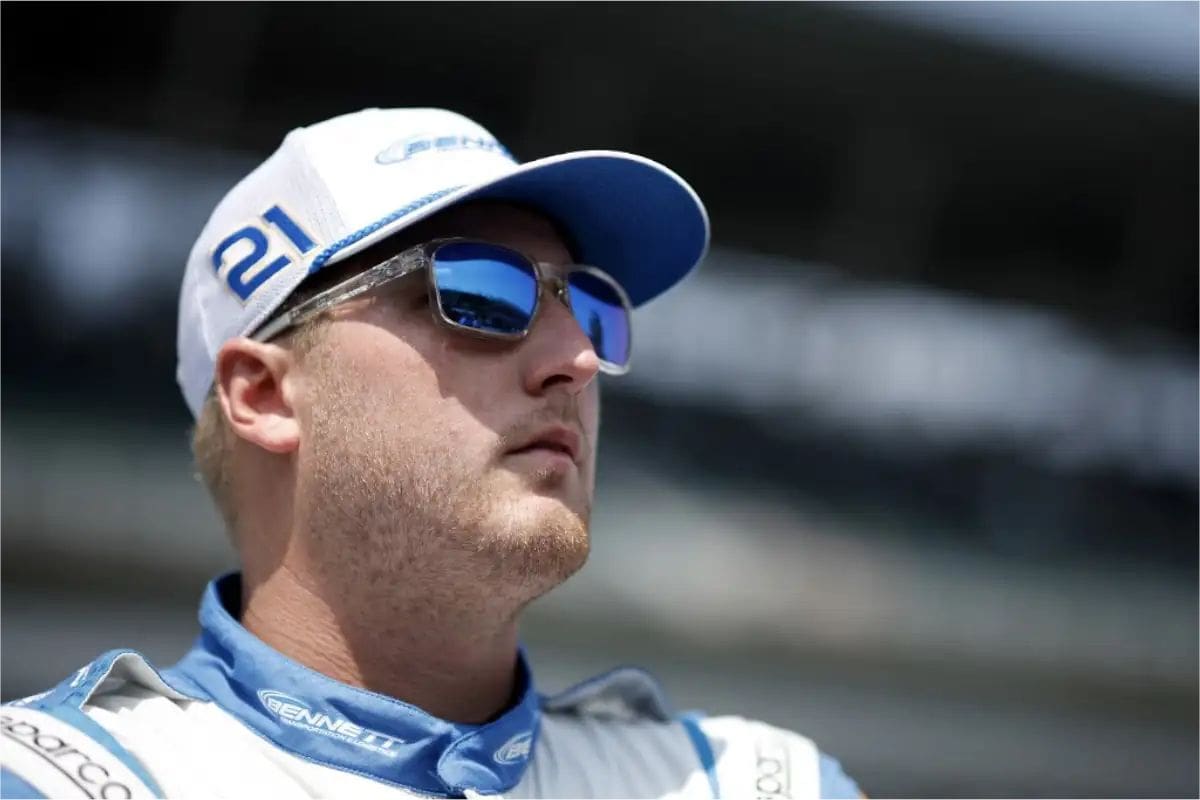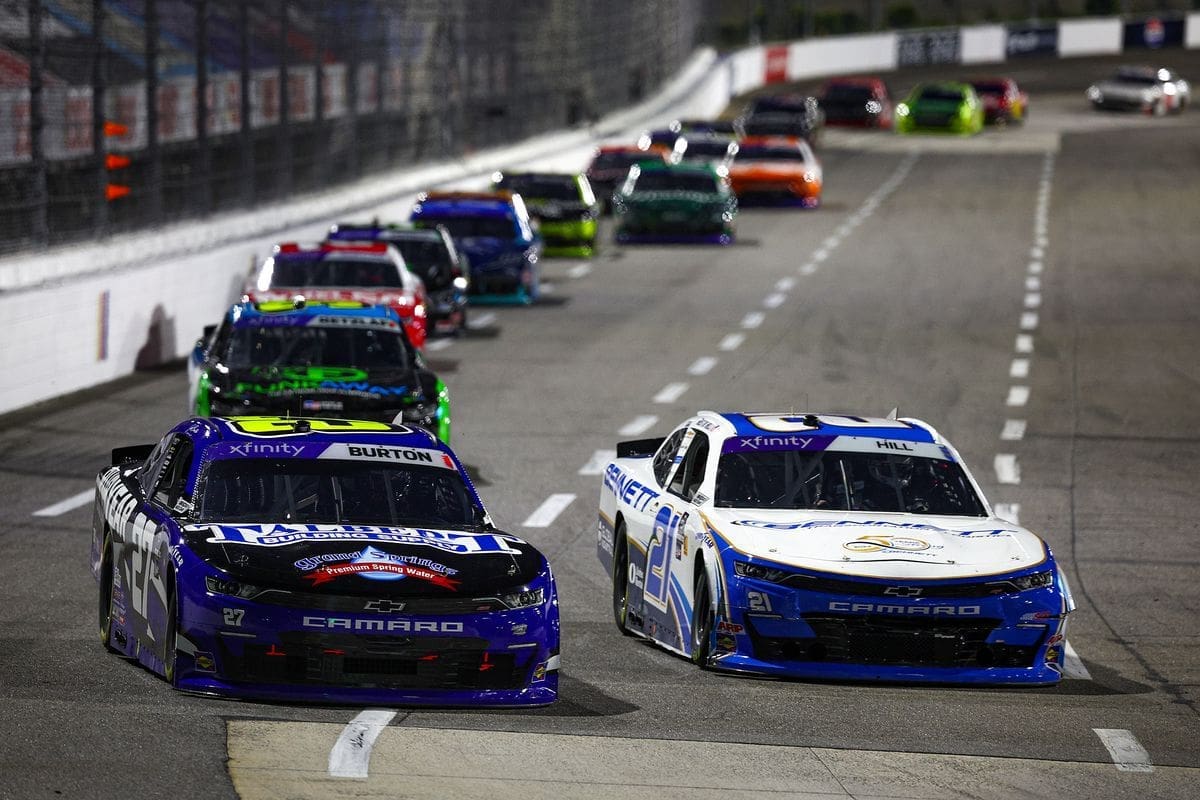NASCAR’s Most Hated Drivers of All Time: The world of NASCAR is rife with rivalries and controversies, where certain drivers have become representative of the sport’s darker side, provoking intense fan reactions. Figures like Austin Dillon and Jimmie Johnson evoke polarized opinions, their perceived entitlement and dominance igniting debates about fairness and competition. This phenomenon raises intriguing questions about the nature of fandom and the psychology behind animosity in sports. As we investigate these unforgettable villains, one must wonder: what drives fans to passionately despise certain figures while idolizing others, and what does this dichotomy reveal about the sport itself?
Key Highlights
- Dale Earnhardt’s aggressive tactics earned him admiration and disdain, solidifying his status as a polarizing figure in NASCAR history.
- Austin Dillon’s perceived entitlement and controversial on-track behavior have contributed to his negative reputation among fans.
- Jimmie Johnson’s dominance in the mid-2010s sparked resentment, particularly among fans who preferred a more competitive field.
- Rick Crawford’s controversial history and actions have left a lasting negative impression on many NASCAR fans.
- William Byron’s lack of clear justification for fan animosity suggests broader frustrations within the NASCAR community.
Drivers Who Captured Fans’ Hearts
NASCAR’s landscape is undeniably shaped by the drivers who have managed to capture fans’ hearts, transforming their racing skill into an enduring legacy. The Most Popular Driver Award illustrates this phenomenon, celebrating those who resonate deeply with their audience. Established in 1956, the award has evolved from a driver poll to a nationwide fan vote, highlighting the importance of public sentiment in the sport.
Bill Elliott stands as a model of popularity, holding the record for 16 wins in the NASCAR Cup Series. His charisma, coupled with his exceptional driving ability, allowed him to forge a connection with fans that transcends mere statistics.
Following closely is Dale Earnhardt Jr., whose 15 awards and remarkable streak from 2003 to 2017 emphasize the enduring nature of his appeal. Both drivers exemplify the ability to evoke emotion and loyalty, which is crucial in a sport where fans often align themselves with personalities as much as with performance.
In the Xfinity Series, Elliott Sadler and Justin Allgaier have also carved a niche for themselves, each securing four awards.
The Craftsman Truck Series highlights Johnny Benson Jr. and Hailie Deegan, each with three accolades, reflecting the diverse talent pool that captivates audiences across different racing formats.
This award not only acknowledges skill but also serves as an affirmation to the drivers who have welcomed their roles as ambassadors of the sport, fostering a deep, personal connection with their fans.
Dale Earnhardt: NASCAR’s Most Controversial Driver
While many drivers have captured the hearts of fans through charisma and sportsmanship, few have sparked as much debate and division as Dale Earnhardt. Revered as “The Intimidator,” Earnhardt’s legacy is defined by a brazen driving style that often blurred the lines between competition and aggression. His unyielding tactics, such as spinning out rivals and executing fearless maneuvers, were instrumental in securing seven championships—tying him with the legendary Richard Petty.
Noteworthy incidents, including the memorable showdown with Rusty Wallace and the infamous “cage-rattling” of Terry Labonte at Bristol, exemplify Earnhardt’s willingness to employ controversial strategies that polarized fan opinions. While many admired his tenacity, others criticized his approach as reckless and unsportsmanlike, igniting fervent debates within the NASCAR community.
Earnhardt’s death during the 2001 Daytona 500 only intensified his aura as a formidable figure in motorsport. His aggressive style left an indelible mark not only on the sport but also on the psyche of fellow competitors, many of whom continue to recount their experiences racing against him.
Dale Earnhardt’s legacy transcends mere statistics; it embodies the complex interplay of admiration and disdain that defines a true sports icon. As fans reflect on his career, they find themselves grappling with the duality of a driver who was both a champion and a controversial figure, ensuring that his memory endures in the annals of NASCAR history.
Austin Dillon: A Closer Look at the Controversy
Austin Dillon has become a polarizing figure in NASCAR, with several reasons fueling fan disdain. Critics point to Dillon’s perceived entitlement and nepotism, as he is seen by some as having had advantages due to his grandfather, Richard Childress’s, influence. This sentiment is compounded by incidents like Dillon’s call for Childress to move Paul Menard out of his way at Martinsville, which many view as an example of his entitlement. Dillon’s failure to win a single race while securing an Xfinity Series championship further adds to the frustration, as it’s seen as indicative of his inability to compete against Cup drivers effectively.
His on-track behavior, including a controversial incident where he ran into Cole Custer under caution without apologizing, has also contributed to negative perceptions. Additionally, Dillon’s “punchable” face and his underperformance compared to other young drivers have solidified his reputation among critics. Despite these points, some fans remain indifferent or neutral towards him.
In the competitive arena of NASCAR, few drivers evoke as much division among fans as Austin Dillon. His rise to prominence is often scrutinized under the lens of perceived entitlement and nepotism, largely attributed to his lineage as the grandson of Richard Childress. Critics argue that Dillon’s career has been buoyed by his grandfather’s influence, culminating in moments such as his controversial request for Childress to clear Paul Menard from his racing path at Martinsville, which many interpreted as a blatant display of privilege.
Dillon’s lack of victories in the Cup Series, despite having secured an Xfinity Series championship, further fuels frustration among supporters and detractors similarly. This discrepancy raises questions regarding his competitive edge against seasoned Cup drivers, contributing to the narrative that he may not possess the requisite talent to succeed at the highest level.
Moreover, Dillon’s on-track conduct, including a notable incident where he collided with Cole Custer under caution without extending an apology, has exacerbated negative perceptions. His facial demeanor, often described as “punchable,” coupled with his inconsistent performance relative to his contemporaries, has cemented his status as a polarizing figure within the sport.
Despite the backlash, a segment of fans remains indifferent, suggesting that Dillon’s appeal is not universally understood. This dichotomy encapsulates the ongoing debate surrounding his role in NASCAR, leaving an indelible mark on the sport’s complex tapestry of heroes and villains.
Reddit Users Weigh in on NASCAR’s Most Hated Drivers
Amidst the vibrant discussions on Reddit, fans of NASCAR have passionately articulated their feelings towards diverse drivers, emphasizing the complex emotions that fuel their preferences. The discourse reveals how deeply personal experiences and perceptions shape the animosity towards certain figures in racing.
Remarkably, Rick Crawford’s controversial history has left an indelible mark, while Jimmie Johnson’s mid-2010s dominance ignited resentment among those who prefer a more competitive field.
“Rick Crawford. I don’t think I need to say why (a quick google search will tell you all you need to know.)”
“Hated Jimmie Johnson from when he started to dominate, from about 2016 when he wasn’t winning as much. I rooted against him more than I cheered for my favorite drivers.” – fans reaction
William Byron stands out as a perplexing case; he is frequently targeted without substantial justification, suggesting a trend where certain drivers become symbols of broader frustrations within the fanbase.
“I hate William Byron.” – fans’ reaction
Austin Hill emerges as a definitive target for some, yet many fans profess a general aversion rather than outright hatred towards others, such as Denny Hamlin and Kyle Larson, the latter often criticized for perceived overvaluation and an irksome fanbase.
“Austin Hill is the only driver I actively root against. But in cup, honestly I don’t hate anyone. Hamlin can be a hypocrite but at least he’s outspoken. Gibbs is a nepo bab at least he’s good. Logano, Busch, and Chastain have calmed down their antics. Larson I do believe is overrated but I don’t dislike him cause of it. Even with Dillion he’s not relevant enough for people to people to hate him for a while. It’s on and off.” – fans’ reaction
Corey LaJoie’s perceived smugness and Ty Gibbs’ wealthy background evoke strong reactions, highlighting how privilege can color public perception.
Corey lajoie. I was a fan back in the day when I thought he was better than the equipment. He’s actually regressed so heavily and he has just the most smug attitude and I honestly can’t stand it. Dude thinks that even though he hasn’t shown anything he should just be given the best rides and accolades (like winning the Daytona 500). Just completely insufferable”
“Ty Gibbs. Because he thinks he worked hard and earned it because he got to go test a late model at Hickory every week when he was 12. He still doesn’t get how privileged he is to have had that.” – fans reaction
Criticism of John Hunter Nemechek appears almost superficial, focused on his appearance rather than performance.
Meanwhile, Austin Dillon’s actions at Richmond continue to haunt his reputation, illustrating the lasting impact of specific incidents.
News in Brief: NASCAR’s Most Hated Drivers of All Time
The landscape of NASCAR is undeniably shaped by its most polarizing figures, whose controversial actions and perceived advantages provoke strong fan reactions. Drivers like Austin Dillon exemplify the complexities of fandom, where feelings of entitlement and nepotism clash with admiration and neutrality. This dynamic demonstrates how individual experiences and specific incidents can forge lasting animosity in the sport. Ultimately, the rivalry and division among fans enrich the narrative of NASCAR, making it a compelling arena for both competition and debate.
ALSO READ: NASCAR Drivers Who Can Win the 2024 Cup Series Championship Race




I realize everyone has a opinion about who they despise on the NASCAR circuit, every driver has their own style of racing some more aggressive than others. Leaving that said, I don’t like a few drivers due to thier arrogant behavior.
Still to childish if they don’t get their own way, act like grown up men and women. But that won’t happen.
I like some of the driver’s listed here some I don’t.